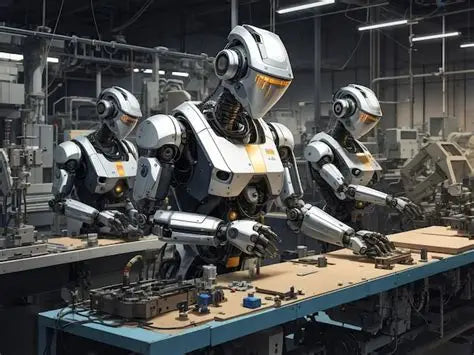
📰 AI News
Share
📰 The AI Revolution: Strategic Investments That Will Transform the World in the Next 3–5 Years
Artificial intelligence (AI) is no longer a futuristic promise—it has become a reality reshaping industries, economies, and societies worldwide. Over the next 3 to 5 years, AI is expected to drive significant advances in key sectors such as healthcare, education, energy, and manufacturing, offering innovative solutions to global challenges and creating new economic opportunities.
💰 Strategic Investments Driving Change
One of the most notable investments in the AI sector is by ASML, the Dutch semiconductor equipment giant, which has invested €1.3 billion in the French startup Mistral AI. This investment not only positions Mistral as Europe’s most valuable AI company, with a valuation of €11.7 billion, but also underscores Europe’s commitment to strengthening its technological sovereignty against powers like the United States and China.
ASML’s strategic move aligns with similar initiatives worldwide. For example, OpenAI and Nvidia are collaborating in the UK to build new AI data centers, supported by the British government. This effort reflects a global trend toward developing “sovereign” AI infrastructures among US allies, aiming to retain data control and foster local economic growth (Financial Times).
🌍 Global Impact and Emerging Opportunities
Investments in AI are generating a significant impact across multiple areas:
Healthcare: AI is revolutionizing medical diagnostics, personalized treatments, and patient data management, improving efficiency and outcomes in the healthcare sector.
Education: AI-powered learning tools are providing personalized educational experiences, adapting to individual student needs, and expanding access to education in remote regions.
Energy and Sustainability: AI algorithms are optimizing energy production and distribution, promoting efficient resource use, and supporting the transition to renewable energy sources.
Manufacturing and Logistics: AI-driven automation is transforming supply chains, enhancing operational efficiency, and reducing costs in industrial production.
🔮 Looking Ahead
AI adoption is expected to continue accelerating in the coming years. According to research by the McKinsey Global Institute, generative AI could help Europe achieve an annual productivity growth rate of up to 3% by 2030 (McKinsey & Company). This growth will drive innovation, create new jobs in tech-driven sectors, and redefine how humans interact with technology in daily life.
However, this progress also brings challenges. Privacy management, data security, and ethical AI use will be key issues to address to ensure a balanced and fair future.
mooicom AI-Tech, Eindhoven.
